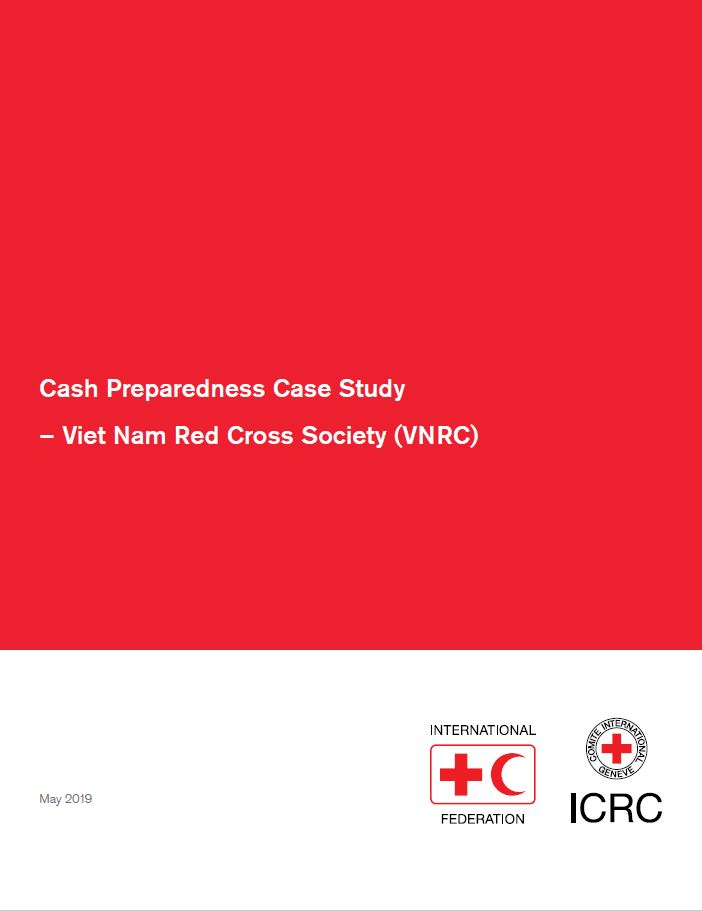The Viet Nam Red Cross Society (VNRC) is one of the leading humanitarian organization in Viet Nam with clear roles in responding to disaster and emergency situation. As an auxiliary to the government, VNRC works closely with the government structures at national, provincial and community level to provide assistance to vulnerable household affected by disasters. In this capacity, it is recognized as the first
agency to deliver much needed relief and support the long-term recovery of disaster affected populations in the areas of food, non-food items, water, hygiene and sanitation, livelihoods and shelter.
The use of cash has a long history in humanitarian development and emergency programming in Viet Nam. It has increasingly become a preferred emergency response option in addition to distribution of household kits and provision of food and non-food items. There is a growing evidence that cash-based intervention (CBI) is an effective modality to meet humanitarian needs of the disaster affected communities. However, there is still much scope for improvement of CBI approaches in Viet Nam.
This paper provides an overview of the increasing use of CBIs by VNRC in emergency operations and highlights the current initiatives taken by VNRC to improve capacity of the National Society for future large-scale responses.
![]()


